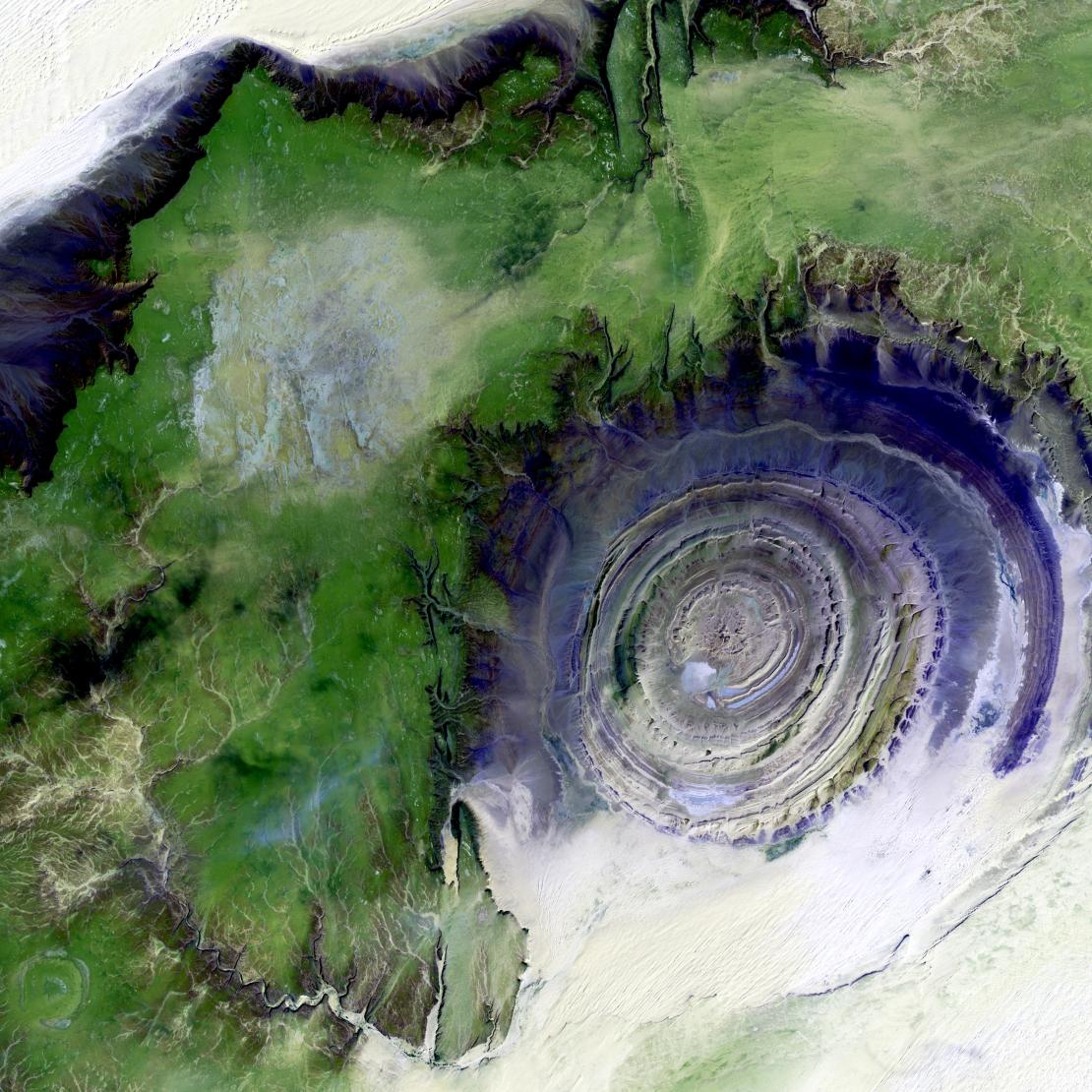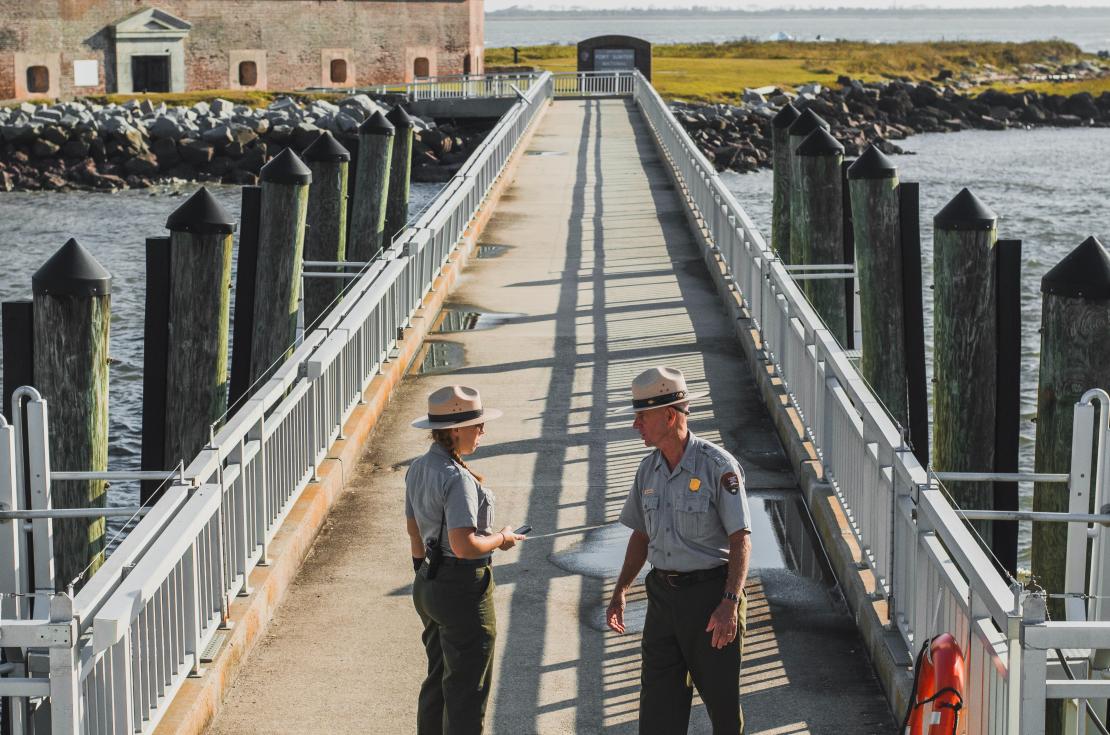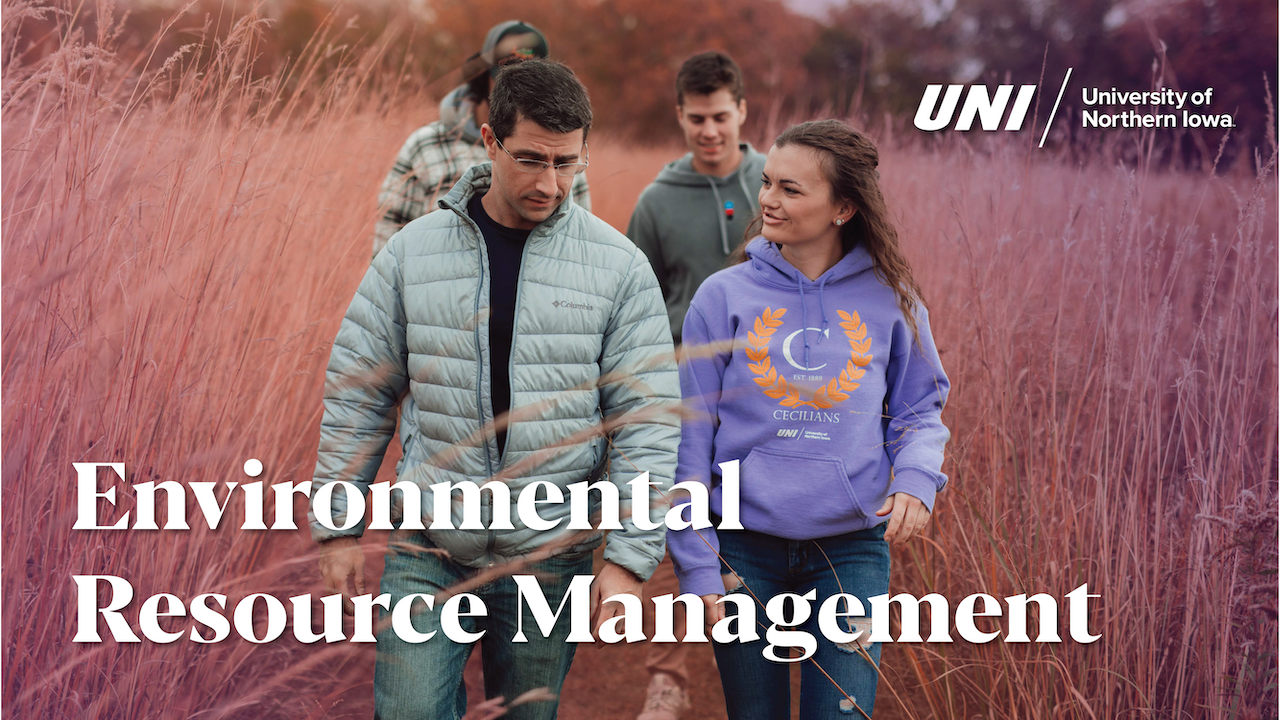Environmental Resource Management Major
Looking for a career that doesn’t tie you to an office?
The environmental resource management (ERM) program at UNI prepares students for a variety of roles in the “outdoor environment.” ERM builds students’ abilities to reach out beyond the campus limits to engage in the more encompassing issues of social, political and economic sustainability in local, regional, national and international environmental arenas.
The major is a collaboration among four departments (biology, geography, earth and environmental science, and recreation, tourism and community services) which offers a unique, interdisciplinary alternative to other, traditional programs.

Integrated
Curriculum
The major is a collaboration among four departments, which offers a unique, interdisciplinary alternative to traditional programs.
Choose your
Adventure
ERM offers a unique path of study through four focus areas: Ecosystems, Geosystems, Resource Administration, or Environmental Compliance.
Career
Oriented
Major prepares prepares for career options in management-oriented corporate, government and non-profit organizations.
Want to learn more?
Fill out your information here and we'll be in touch!
Contact us directly at:
Department of Geography
205 ITTC
University of Northern Iowa
Cedar Falls, IA 50614-0406
319-273-2772
Why Environmental Resource Management?
Find your path.
The ERM program offers four focus areas to choose from:
- Ecosystems: management of biological (e.g., forest, prairie, desert, salt- and freshwater) systems.
- Geosystems: management of geomorphic (riverine, glacial, eolian) and geologic systems.
- Resource Administration: management of non-profit agencies, recreation and human services and tourism.
- Environmental Compliance: management of environmental agencies that oversee how well private companies and public entities comply with existing environmental regulations.

Shape your future.
UNI’s ERM major prepares students for career options in management-oriented corporate, government and non-profit organizations related to natural resources, environmental systems and sustainable development. To name a few:
- Extension Agent
- Environmental Consultant
- Environmental Policy Analyst
- Forester
- Fisheries Manager
- Land Use Planner
- Natural Resources Educator

Go beyond.
Internships and research opportunities are strongly encouraged in all geography programs, as is study abroad and international travel.
Service to community is also a vital aspect of the department. While individual geography faculty members engage their students in applied projects in the Cedar Valley and across Iowa, departmental centers/organizations are campus leaders in providing expertise and training to the state and region.

Find your path.
The ERM program offers four focus areas to choose from:
- Ecosystems: management of biological (e.g., forest, prairie, desert, salt- and freshwater) systems.
- Geosystems: management of geomorphic (riverine, glacial, eolian) and geologic systems.
- Resource Administration: management of non-profit agencies, recreation and human services and tourism.
- Environmental Compliance: management of environmental agencies that oversee how well private companies and public entities comply with existing environmental regulations.

Shape your future.
UNI’s ERM major prepares students for career options in management-oriented corporate, government and non-profit organizations related to natural resources, environmental systems and sustainable development. To name a few:
- Extension Agent
- Environmental Consultant
- Environmental Policy Analyst
- Forester
- Fisheries Manager
- Land Use Planner
- Natural Resources Educator

Go beyond.
Internships and research opportunities are strongly encouraged in all geography programs, as is study abroad and international travel.
Service to community is also a vital aspect of the department. While individual geography faculty members engage their students in applied projects in the Cedar Valley and across Iowa, departmental centers/organizations are campus leaders in providing expertise and training to the state and region.


